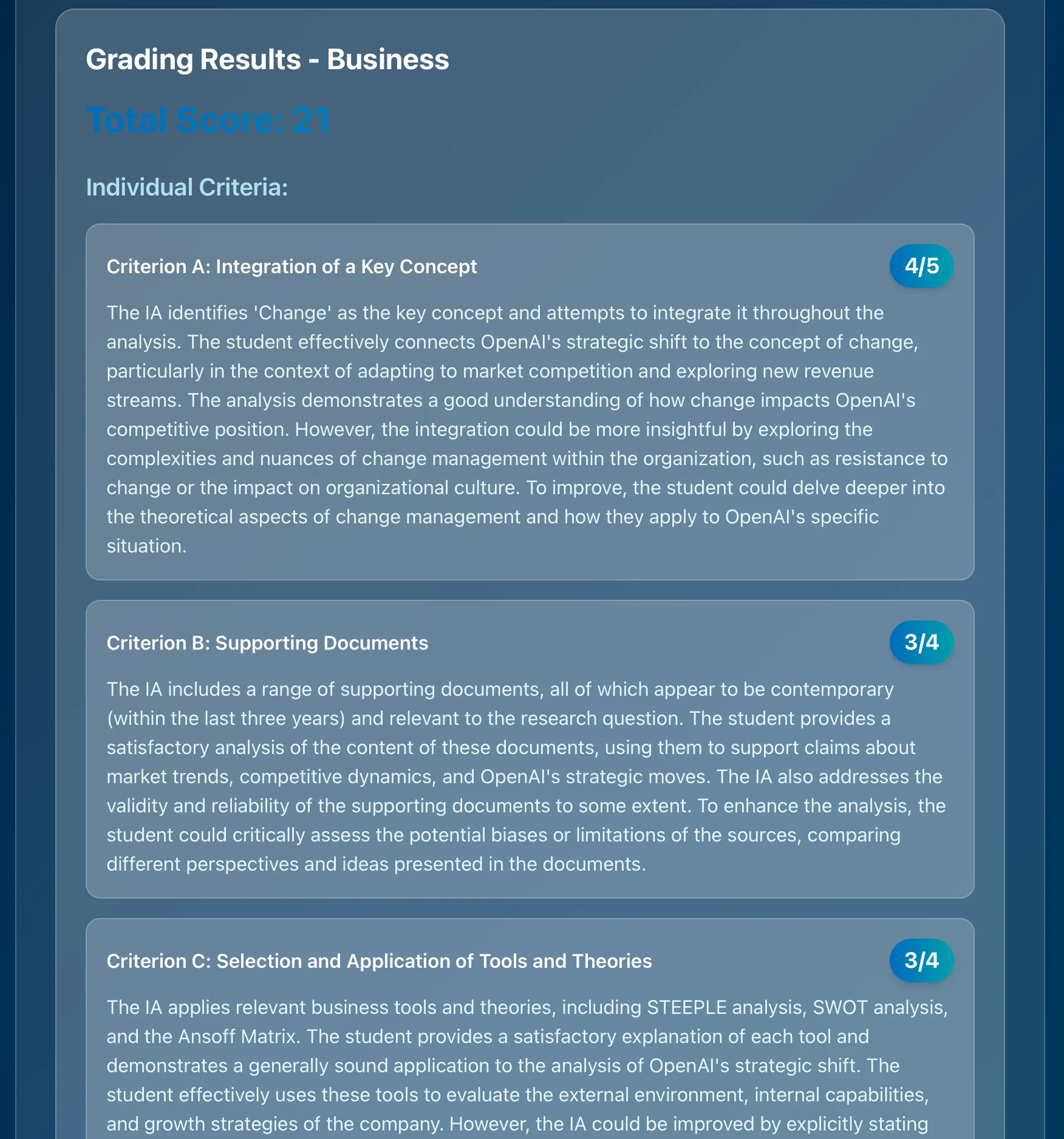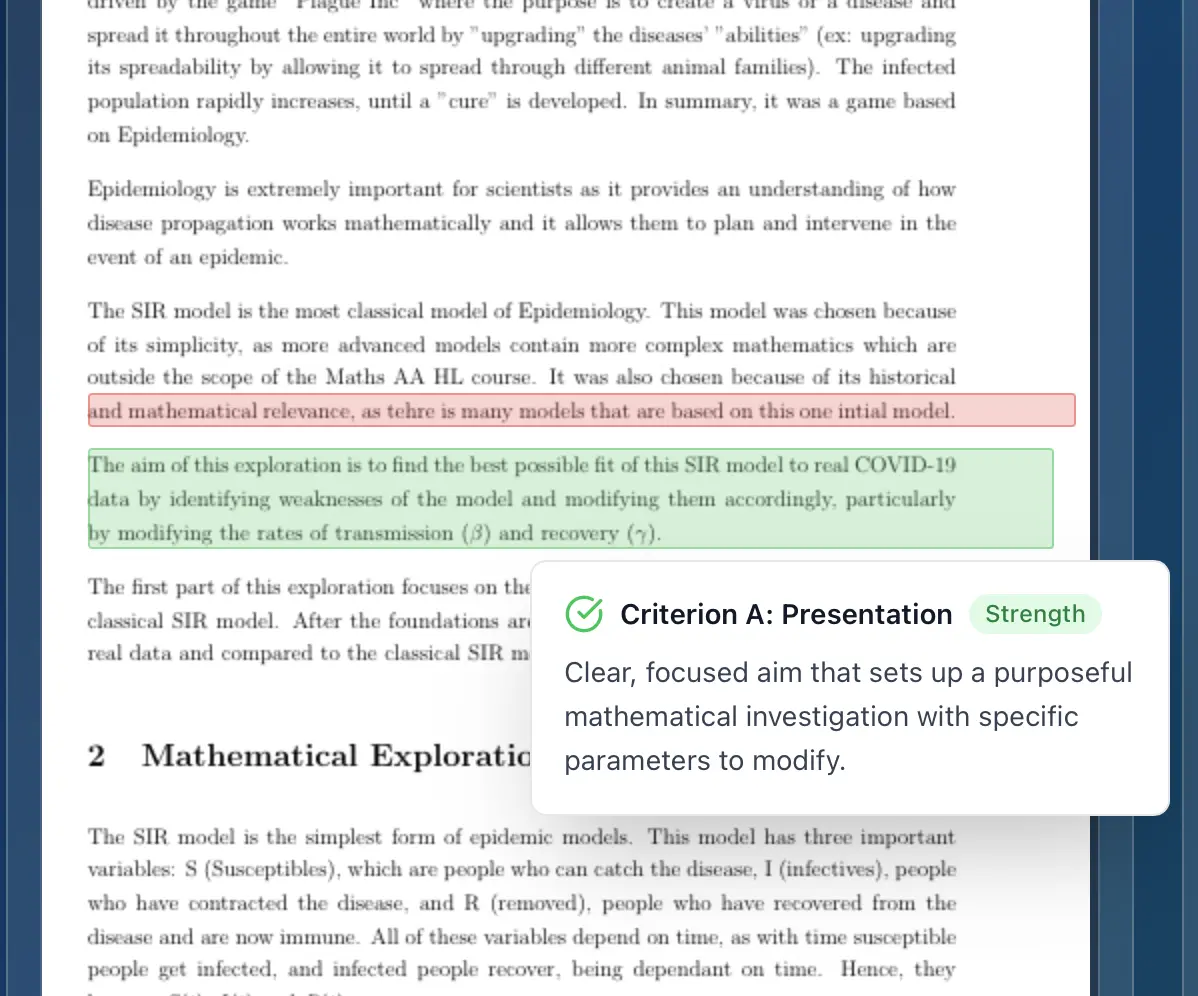Mastering the Essay Theory of Knowledge Criteria: Your Ultimate IB Grading Guide
Understanding the essay theory of knowledge criteria is crucial for success in the IB program. This guide provides a comprehensive breakdown of the IB essay grading rubric, offering clarity on what examiners look for and how to achieve top marks. We'll explore each criterion in detail, providing practical tips and examples to help you excel in your essay IA requirements.
What is the Essay Theory of Knowledge?
The Theory of Knowledge (TOK) essay is a core component of the International Baccalaureate (IB) Diploma Programme. It's an externally assessed piece of work where students critically reflect on the nature of knowledge itself. Students choose one prescribed title (a question) released by the IB and develop an essay that explores the implications of this title, using real-life examples and reasoned arguments. The goal is to demonstrate an understanding of TOK concepts and apply them to real-world situations.
Struggling with IB Assessments?
Get instant, detailed feedback on your work with AI that understands IB criteria.

Understanding the Grading Criteria
The IB uses a specific set of criteria to assess the TOK essay. These criteria are designed to evaluate your ability to analyze knowledge questions, justify your claims, consider different perspectives, and present your ideas in a clear and coherent manner. Understanding these criteria is the first step towards writing a successful essay. The total marks available for the TOK essay are 20.
Detailed Breakdown of Essay Theory of Knowledge Criteria
Let's delve into each criterion of the TOK essay assessment rubric, providing detailed explanations, mark band descriptions, and tips for success.
Criterion A: Understanding Knowledge Questions (0-6 marks)
What it assesses: This criterion assesses the extent to which you identify and understand relevant knowledge questions arising from the prescribed title. A knowledge question is an open question about knowledge itself, rather than a specific topic.
Mark bands:
- 0 Marks: The student does not identify or understand any relevant knowledge questions.
- 1-2 Marks: The student identifies knowledge questions, but demonstrates limited understanding of their relevance to the prescribed title. The knowledge questions may be superficial or poorly formulated.
- 3-4 Marks: The student identifies relevant knowledge questions and demonstrates a satisfactory understanding of their connection to the prescribed title. The knowledge questions are reasonably well-formulated.
- 5-6 Marks: The student identifies insightful and relevant knowledge questions and demonstrates a thorough understanding of their significance to the prescribed title. The knowledge questions are clearly and precisely formulated.
Tips for success:
- Identify genuine knowledge questions: Don't just rephrase the prescribed title. Dig deeper to uncover the underlying questions about knowledge. For example, if the title is "Is there a good reason to trust experts?", a knowledge question could be "How do we determine the reliability of sources of knowledge?"
- Connect knowledge questions to the title: Clearly explain how your knowledge questions relate to the prescribed title. Show that you understand the nuances of the title and how your questions address them.
- Formulate clear and precise questions: Avoid vague or ambiguous language. Your knowledge questions should be focused and easy to understand.
Criterion B: Quality of Analysis (0-6 marks)
What it assesses: This criterion assesses the depth and breadth of your analysis of the knowledge questions. Analysis involves breaking down complex ideas, exploring different perspectives, and considering the implications of your arguments.
Mark bands:
- 0 Marks: The student provides no analysis of the knowledge questions.
- 1-2 Marks: The student provides limited analysis of the knowledge questions. The analysis is superficial, descriptive, and lacks critical thinking.
- 3-4 Marks: The student provides a satisfactory analysis of the knowledge questions. The analysis demonstrates some critical thinking and explores different perspectives, but may lack depth or coherence.
- 5-6 Marks: The student provides a thorough and insightful analysis of the knowledge questions. The analysis demonstrates strong critical thinking, explores different perspectives in a balanced way, and develops a coherent argument.
Tips for success:
- Go beyond description: Don't just describe examples; analyze them. Explain why they are relevant to your argument and how they support your claims.
- Explore different perspectives: Consider different viewpoints and acknowledge the limitations of your own perspective. This demonstrates critical thinking and intellectual honesty.
- Develop a coherent argument: Your analysis should build a clear and logical argument that supports your overall thesis. Avoid jumping between ideas without a clear connection.
Criterion C: Quality of Justification (0-6 marks)
What it assesses: This criterion assesses the extent to which you justify your claims and arguments with relevant and convincing evidence and examples. Justification involves providing reasons and evidence to support your claims.
Mark bands:
- 0 Marks: The student provides no justification for their claims or arguments.
- 1-2 Marks: The student provides limited justification for their claims or arguments. The evidence and examples are weak, irrelevant, or poorly explained.
- 3-4 Marks: The student provides satisfactory justification for their claims and arguments. The evidence and examples are generally relevant and explained, but may lack depth or persuasiveness.
- 5-6 Marks: The student provides strong and convincing justification for their claims and arguments. The evidence and examples are relevant, well-explained, and effectively support the student's reasoning.
Tips for success:
- Use relevant examples: Choose examples that are directly related to your knowledge questions and arguments. Avoid using generic or irrelevant examples.
- Explain your examples: Don't just state your examples; explain them in detail. Show how they support your claims and why they are relevant to your argument.
- Consider counter-arguments: Acknowledge and address potential counter-arguments to your claims. This demonstrates critical thinking and strengthens your overall argument.
Criterion D: Significance of Perspective (0-4 marks)
What it assesses: This criterion assesses the extent to which you consider different perspectives and their implications for knowledge. It's about recognizing that knowledge is often shaped by our individual and cultural perspectives.
Mark bands:
- 0 Marks: The student does not consider different perspectives.
- 1 Mark: The student considers different perspectives in a limited or superficial way.
- 2 Marks: The student considers different perspectives and acknowledges their implications for knowledge, but the discussion may lack depth or critical analysis.
- 3-4 Marks: The student effectively considers different perspectives and analyzes their implications for knowledge in a thoughtful and insightful way.
Tips for success:
- Identify different perspectives: Consider how different individuals, groups, or cultures might view the knowledge questions you are exploring.
- Analyze the implications of perspectives: Explain how different perspectives can shape our understanding of knowledge and influence our beliefs.
- Avoid bias: Be aware of your own biases and strive to present different perspectives in a fair and balanced way.
Criterion E: Structure and Clarity (0-4 marks)
What it assesses: This criterion assesses the clarity, coherence, and organization of the essay. A well-structured and clearly written essay is easier to understand and more persuasive.
Mark bands:
- 0 Marks: The essay is poorly structured and difficult to understand.
- 1 Mark: The essay is somewhat structured, but there are significant issues with clarity and coherence.
- 2 Marks: The essay is generally clear and organized, but there may be some areas for improvement in structure and coherence.
- 3-4 Marks: The essay is clear, coherent, and well-organized. The argument is easy to follow and the essay demonstrates a logical flow of ideas.
Tips for success:
- Plan your essay: Create an outline before you start writing to ensure that your ideas are organized and flow logically.
- Use clear and concise language: Avoid jargon and overly complex sentence structures.
- Proofread carefully: Check your essay for grammatical errors, spelling mistakes, and typos.
How to Excel in Your Essay Theory of Knowledge
- Choose a title you understand: Don't pick a title just because it sounds impressive. Choose one that you genuinely understand and are interested in exploring.
- Start early: Don't wait until the last minute to start working on your essay. Give yourself plenty of time to research, plan, and write.
- Seek feedback: Ask your teacher, classmates, or other trusted individuals to read your essay and provide feedback.
- Use real-life examples: Ground your arguments in real-life examples to make them more concrete and relatable.
- Reflect on your own knowledge: Consider how your own experiences and beliefs have shaped your understanding of knowledge.
Pro Tip: Get AI-Powered Grading
Stop second-guessing your grades. Get instant feedback aligned with official IB rubrics.

Common Mistakes to Avoid
- Describing instead of analyzing: Focus on analyzing the knowledge questions, not just describing examples.
- Using vague or unsupported claims: Back up your claims with evidence and reasoning.
- Ignoring different perspectives: Consider different viewpoints and acknowledge the limitations of your own perspective.
- Writing a poorly structured essay: Plan your essay carefully to ensure that your ideas are organized and flow logically.
- Plagiarism: Always cite your sources properly to avoid plagiarism.
The Role of AI in Modern Assessment
Modern technology is revolutionizing how we approach academic assessment. AI-powered grading assistants can now help teachers maintain consistency and accuracy in their evaluations while saving valuable time. These tools use the same official IB criteria to provide detailed feedback and scoring, ensuring that assessments meet the high standards expected in IB programs.
For educators looking to streamline their grading process while maintaining the quality and consistency that IB assessments demand, AI grading assistance offers a powerful solution that complements traditional teaching methods.
Conclusion
Mastering the essay theory of knowledge criteria is essential for achieving success in the IB program. By understanding the assessment rubric, following the tips outlined in this guide, and avoiding common mistakes, you can write an essay that demonstrates your understanding of TOK concepts and earns you top marks. Remember to focus on analyzing knowledge questions, justifying your claims, considering different perspectives, and presenting your ideas in a clear and coherent manner.
Looking for more support with IB assessment grading? Discover how AI-powered grading assistants can help maintain consistency and accuracy in your evaluations while saving valuable time. Learn more about modern grading solutions designed specifically for IB educators.